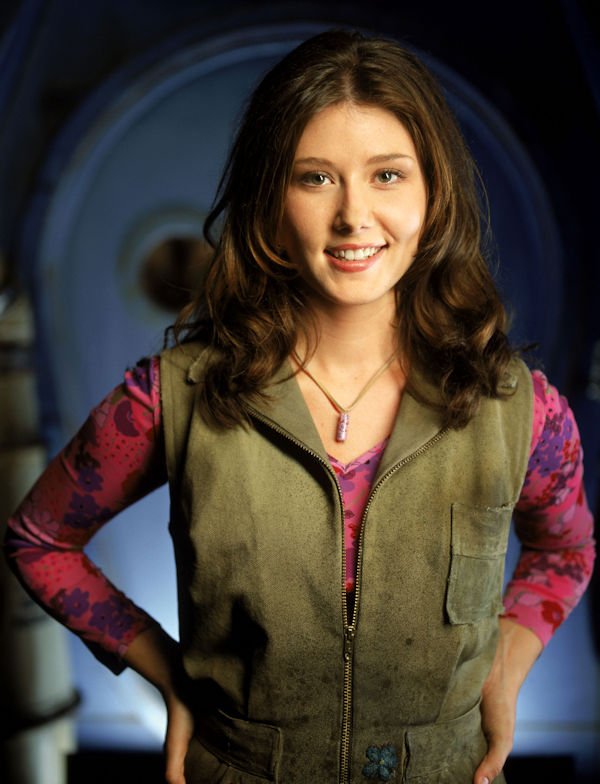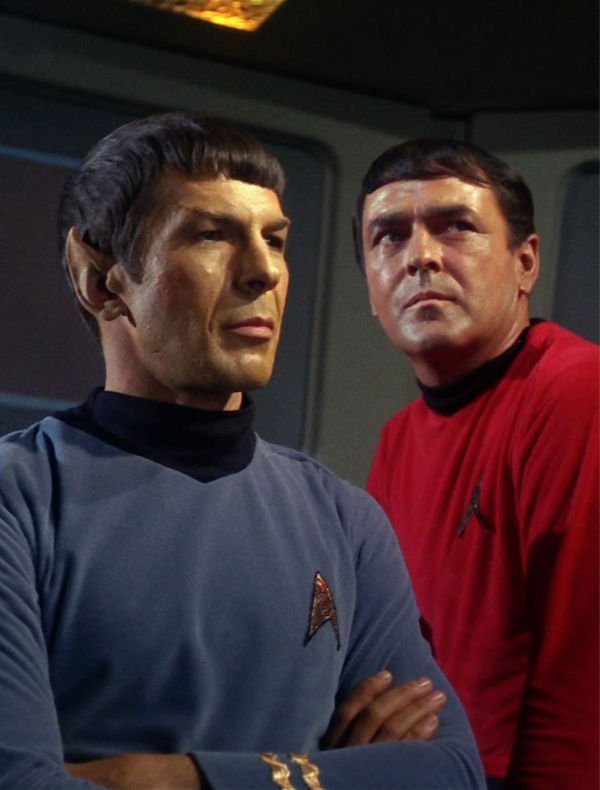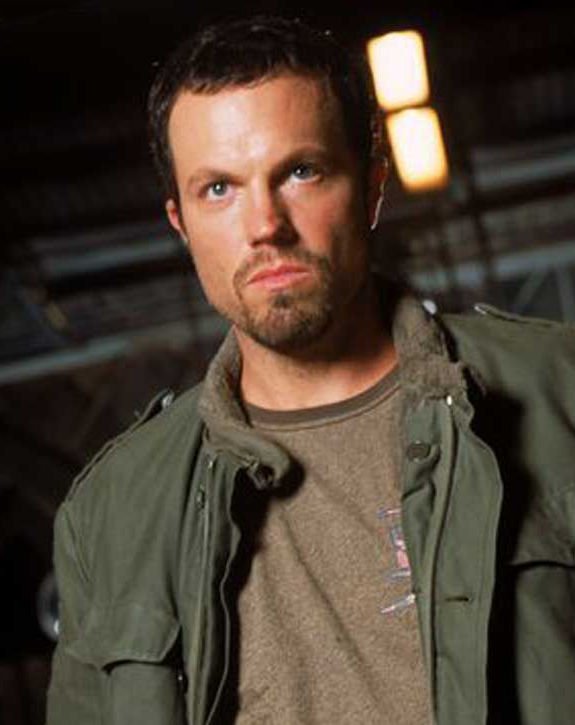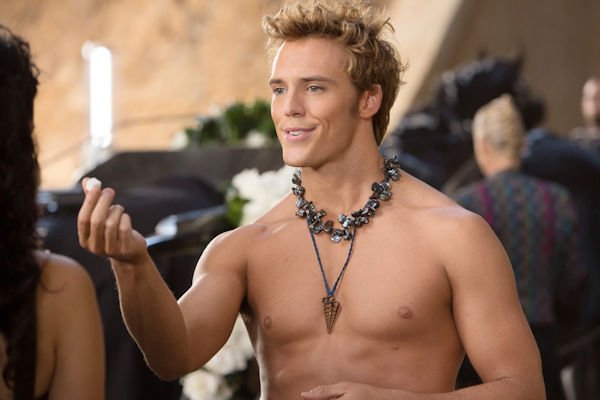As many of you know, I love science fiction. I originally got into sci-fi through the world of television: Star Trek, Stargate, Firefly. Then when I finally dove into reading sci-fi, I gravitated toward the Hunger Games, the Firefly Serenity comics, and all of Becky Chambers work. Like fantasy, it was inevitable I’d start writing science fiction as well. I really gravitate toward spaceship stories—where there’s a motley crew trying to get along and learning to work with one another. But…when I first started writing sci-fi I noticed a lot of my characters sounded alike. And then I wondered how I could fix that.
What is Character Voice?
 Character voice is the way a character expresses themselves. One way this can be done is through dialogue, spoken words. A character’s voice is specific and unique to that character, and it’s a way to easily distinguish one character from another. Basically, just like in real life, your characters should have their own way of speaking—their cadence, the words they use, the ideas they put forth. To go with a Firefly theme for a moment, Kaylee speaks very differently than Simon. While the verbal aspect of a character’s voice is important, don’t forget about their specific personality and even body language. Those play a part in character voice, too.
Character voice is the way a character expresses themselves. One way this can be done is through dialogue, spoken words. A character’s voice is specific and unique to that character, and it’s a way to easily distinguish one character from another. Basically, just like in real life, your characters should have their own way of speaking—their cadence, the words they use, the ideas they put forth. To go with a Firefly theme for a moment, Kaylee speaks very differently than Simon. While the verbal aspect of a character’s voice is important, don’t forget about their specific personality and even body language. Those play a part in character voice, too.
But making unique character voices can be difficult. It’s a lot of work, so let’s get down to how to make it a little easier.
How to Make Voices Unique
Incorporate Their Backgrounds
An easy way to figure out a character’s voice is to weave in their culture, as well as age and education level. If you know your character’s background, draw those inspirations into their voice. Were they from Earth, originally? Just in America alone, we have many different areas to pull from—Southerners have that twang and charm, New Yorkers usually speak really fast, Alaskan Natives really do have many different words for snow because it’s so important to their culture. And don’t even get me started on the other countries! Earth is flush with voices. Where your character lived and how they lived will affect how they speak; their culture and background will naturally bleed into their words and phrases. Include their education and age, too. Did they go to the academy? Drop out at a young age? Is your character an elder, or a young kid? All of this will have an impact how the character speaks and thinks and acts.
 Star Trek has some really great examples: Consider Scotty. After a fight with the Klingons, Scotty is reporting to Captain Kirk, “We got three of the devils aboard alive, all sick as dogs from breathin’ smoke, and well deservin’ of it.” From that tiny snippet, we know that Scotty has an accent from “breathin” and “deservin”; he’s familiar with religion from the use of the word “devils”; and he doesn’t seem to care for Klingons. As Trekkies, we know this is because his people are still at war with the Klingons and don’t really like them. We know this is a cultural thing he’s verbalizing from his background.
Star Trek has some really great examples: Consider Scotty. After a fight with the Klingons, Scotty is reporting to Captain Kirk, “We got three of the devils aboard alive, all sick as dogs from breathin’ smoke, and well deservin’ of it.” From that tiny snippet, we know that Scotty has an accent from “breathin” and “deservin”; he’s familiar with religion from the use of the word “devils”; and he doesn’t seem to care for Klingons. As Trekkies, we know this is because his people are still at war with the Klingons and don’t really like them. We know this is a cultural thing he’s verbalizing from his background.
Contrast that with the response from Spock from the same novel after the same fight: first Spock quotes Shakespearean poetry and then he says, “Observation, Captain. I have seen how the Klingons act, only too often. They are not logical…but they are predictable.” Spock uses higher language, he’s more formal, and he seems even keeled. As fans, we can recognize this kind of formal language because that’s the way the Vulcans speak. (The Vulcan Academy Murders, Jean Lorrah)
Think About Their Jobs
 Every job has their own specific jargon or key words, so incorporating those into your character’s voice and thoughts is an easy way to distinguish them from one another. A bridge engineer will obviously use different words than the med-bay medic. Utilize that! Doing so will make your characters more realistic.
Every job has their own specific jargon or key words, so incorporating those into your character’s voice and thoughts is an easy way to distinguish them from one another. A bridge engineer will obviously use different words than the med-bay medic. Utilize that! Doing so will make your characters more realistic.
From Becky Chamber’s novel A Closed and Common Orbit, the engineer Pepper is talking to one of her robots: “Let’s see what kind of port you have. That’s a run-of-the-mill headjack. Good. Makes you look like a modder on a budget.” She’s using jargon from her own world of tech and engineering—port, headjack, modder, bots—which is specific to her as a character.
Decide on Their Speech Patterns
 How does the character actually talk? How do they pace their words—like, do they speak slowly or fast? Think about their sentence length. Some characters like to go on and on about one subject, while others prefer short sentences to convey their points, and some even only speak in one-word snippets. This might also reflect their education or lack there-of. If they went to an academy, perhaps they speak in flowing and flowery sentences. If they didn’t go to school, maybe they speak in a more abrupt voice.
How does the character actually talk? How do they pace their words—like, do they speak slowly or fast? Think about their sentence length. Some characters like to go on and on about one subject, while others prefer short sentences to convey their points, and some even only speak in one-word snippets. This might also reflect their education or lack there-of. If they went to an academy, perhaps they speak in flowing and flowery sentences. If they didn’t go to school, maybe they speak in a more abrupt voice.
A perfect example of this is Jayne from the Firefly Serenity comics. His speech pattern and the words he uses give a real clear image of him. Phrases like, “It ain’t what we bargained at.” and “Now when the purple-bellies gettin’ here?” Jayne rarely uses flowery words, and he speaks in clipped sentences. He’s an abrupt person, someone who clashes with Mal at every turn, and he doesn’t have much of an educational background. The way he speaks reflects that nature.
Body Language Is Part Of Character Voice
It’s said that over half of what we “say” is through our body language, so be sure to incorporate that for your characters. How do your characters hold themselves—open and welcoming or more reserved and closed off? How do they walk around—fast, or more like a meander? Showing off these aspects will do wonders to make your characters unique.

Finnick Odair is the perfect example from Hunger Games. He saunters over wearing next to nothing—literally a piece of rope tied rather suggestively—and offers Katniss a sugar cube. His confidence is clear in the way he holds himself. Do the same for your characters!
Include Their Personalities
This one is always a fun to consider and goes hand-in-hand with the body language. What kind of person is your character? A follower might not interject during conversations, whereas someone who is more of a leader might talk all the time. Someone who rejects authority might verbally clash with everyone. A person might get super chatty when they’re nervous…or they may clam up. Are they angry and want to take on the world, narcissistic and think all the stars revolve around them, or a playful and trickery type? All of these personality traits will factor in to how they talk, think, and act. All of this will inform their overall voice.
For example, in my adult sci-fi novel Finding Hekate, one of my main characters, named Cassidy, is a cheerful person. She’s a glass-overflowing type of character who always sees the good in the situation and the people she works with, even the broken ones. I portray that in the little things she does, joking around, complimenting her friends, and doing kind things for her crew like purchasing new gloves for the captain and making bread for everyone. Her actions and the way she holds herself portray this even when she’s not saying anything at all.
Consider A Catch Phrase
 No, not an actual catch phrase, rather a consistent word or curse they use… or even maybe an alien-specific phrase. This is a really fun trick to use if you’re creative about it and can be the perfect thing to distinguish between characters. It can be fun if you have an alien onboard your spaceship, because then you can draw in that alien culture into their go-to word. You can also use the same trick to distinguish a race or species of people from others.
No, not an actual catch phrase, rather a consistent word or curse they use… or even maybe an alien-specific phrase. This is a really fun trick to use if you’re creative about it and can be the perfect thing to distinguish between characters. It can be fun if you have an alien onboard your spaceship, because then you can draw in that alien culture into their go-to word. You can also use the same trick to distinguish a race or species of people from others.
For example, a perfect one is Kaylee’s “Shiny!” Another one is from Becky Chamber’s book Record of the Spaceborn Few and her character Eyas. Eyas mutters “Stars” quite often, and while other people also use that phrase sometimes, Eyas seems to like using it more often than not. Even I use it in Finding Hekate with Cassidy saying “Galaxies” when she’s shocked.
As you can tell, there are many things that can influence your character. Utilize one, or all, of these tips to create unique character voice!
Title image by Joseph Redfield Nino.


